For many seniors, living alone is a way of life, especially if they have children that are grown and out of the house. However, this doesn’t mean they have to be completely by themselves. Seniors may enjoy an animal or pet as a great companion to help ease the quietness of living alone. As seniors age, getting around is more difficult, the memory of the senior is often weaker, and learning can be slower. Yet, this is no reason to be left alone from what life still can give to the elderly person. A pet can help improve the wellbeing of the elderly person and give them a sense of enjoyment as they age. But what type of pet is the right one for the elderly? Each animal may have different and unique characteristics. Plus, each pet will come with all types of energy and responsibilities. In most cases, a pet with lots of energy may not be the best choice for a senior to have, unless the senior is still very active themselves. If that’s the case, then an active and lively pet is fine. However, there are times when a low maintenance or easy to care for animal will be the best pet for seniors. Whichever type of pet you choose, getting one that matches your lifestyle, living situation, and finances should be your first priorities.
Below are some of the top choices and best options for our older population to enjoy.
1. Dogs

Dogs can make the best choice for seniors; especially if the senior is still very active and loves the outdoors. Many dog types are affectionate and love to cuddle with their owners. Some may also sense sadness or concern among their owners and can even alert neighbors or the police. Before choosing a dog, consider all the factors, such as the seniors’ activity level, mobility issues, and living arrangements. Most medium to large dogs is better at service animals than a small pup. However, a little dog can be easily carried around and weigh much less. Larger dogs will need to be walked more and require a yard to run around in. Yet a small dog is sometimes difficult to notice and may cause the senior to fall or lose balance. Both small and large dogs have their perks. The best types of small dogs for seniors are Cavalier King Charles spaniels, Shih Tzus, or the Maltese. For medium dog lovers, the Greyhound is a good choice. Choosing the right one is all up to you.
2. Cats
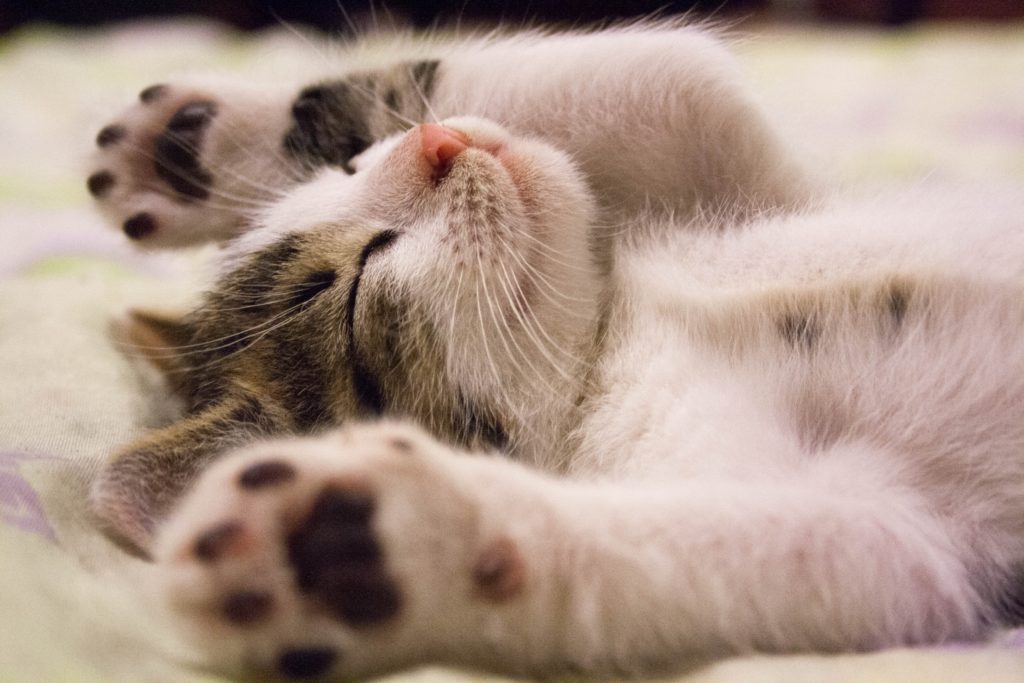
Cats are really one of the best pets for seniors. They are low maintenance, do not require walking, and don’t need much attention. These furry friends can also be good as a stress reliever. Many will allow you to stroke their hair and massage their soft belly, letting you stay relaxed. For those living in apartments or small communities, cats are a great choice since they don’t bark like dogs or keep neighbors up. Cats will still need some daily playtime, and occasional brushing, depending on the breed of choice. For the most part, the best cat types for seniors are British Shorthairs and Ragdolls.
3. Fish
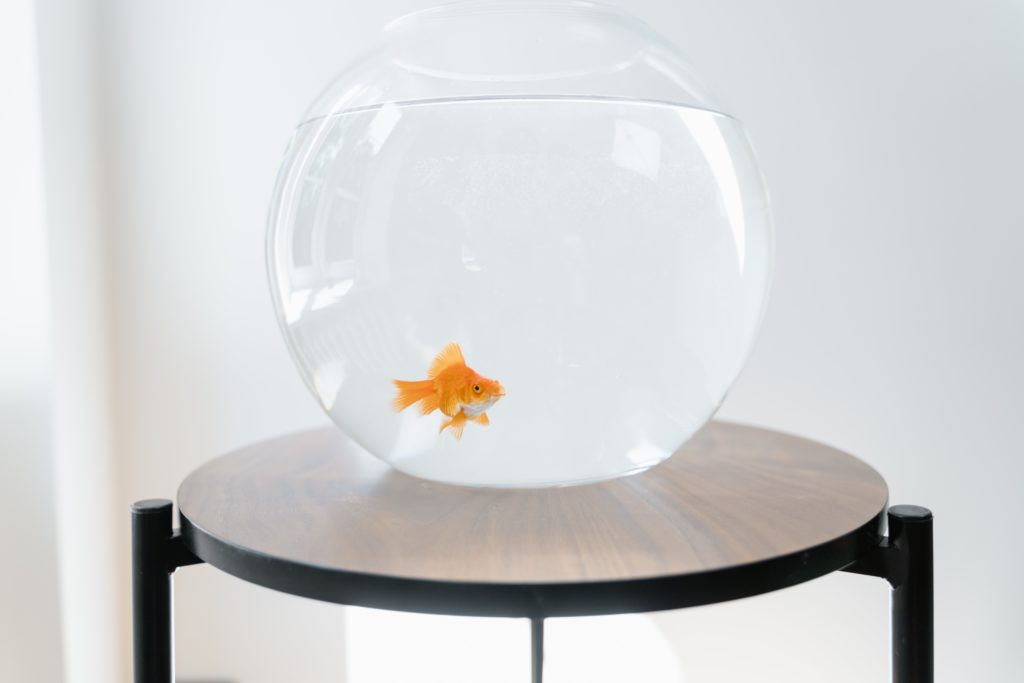
Seniors who may be allergic to pet hair like a dog or cat, then the next pet should solve this issue. Fish can not only be a good choice for seniors, but it can also be a great entertainer for when the grandkids come over. Having a fish tank can be inviting to all who visit and offer a calming effect. Fish is also an enjoyable hobby for seniors. Choosing a small fishbowl or tank would be the best choice, since big aquariums are hard to manage and maintain. The setup is pretty simple. All you need is a freshwater tank, a good quality filter, and a way to balance the pH in the water. Maintenance involves feeding them daily, testing water weekly, and to vacuum gravel once a month. Seniors should buy items for the tank, such as fake plants or coral, to keep the fish engaged. Suggested size tank for seniors is under 10 gallons. You should also choose species that can coexist together inside the tank.
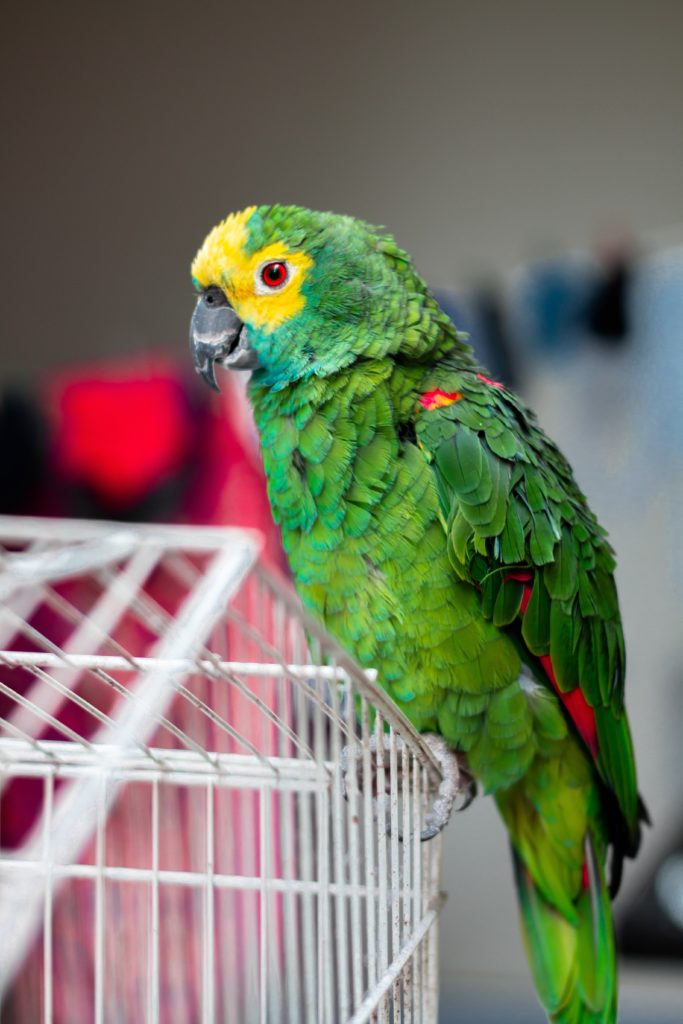
4. Birds
For seniors who love birdwatching and listening to early morning chirping coming from the garden, then getting a bird as a pet is a great idea. One of the most common birds as pets are Parakeets. They are full of color, less to clean up, and a very cheery bird. They also are well-tempered and very entertaining to watch. Parakeets also like the occasion to fly around the house, if permitted. Parakeets are also not as noisy as other birds, such as parrots. These birds do work better as pairs, though it’s just a suggestion. Parakeets also tend to not bite as much as larger birds. Plus, most parakeets have a life expectancy of 7 to 10 years. Daily care is simple, like cleaning and replacing the food and water, and putting down a clean lining of paper each week. Betta fish are a good option for seniors. They are often solitary, small space fish, which are full of color and fun to look at it.
5. Insects and Spiders
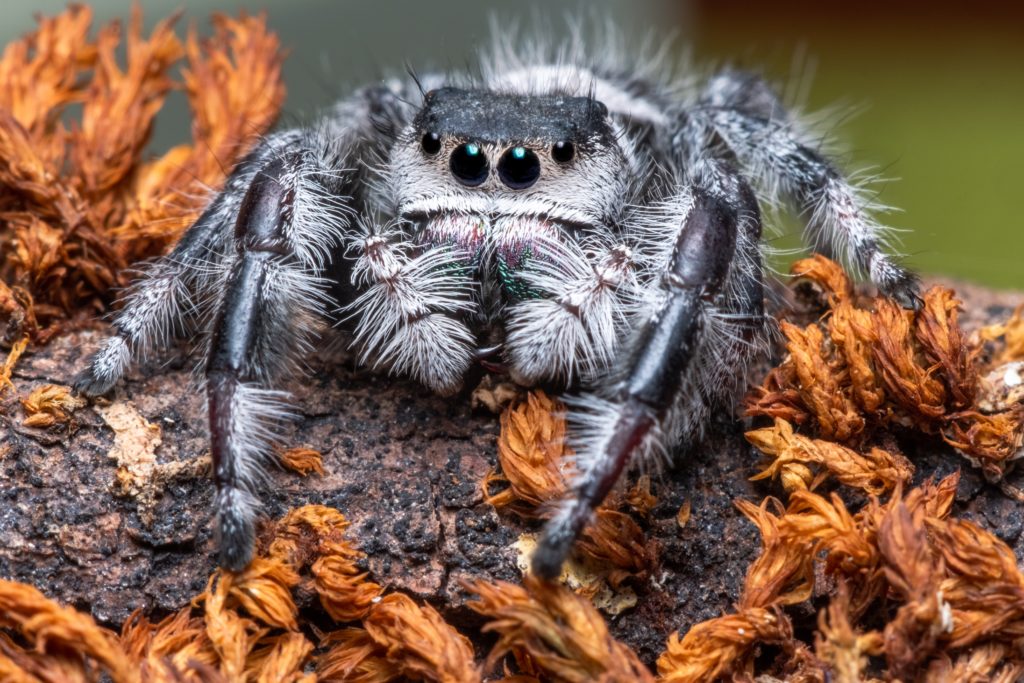
For those who have no issues with bugs, then a spider or insects may be an interesting pet. Insects are quiet, easy to care for, and need only a little space. Spiders or Invertebrates typically eat other insects and can make good alternatives to caring for a pet fish. Insects and spiders are also fascinating to watch and come in many colors. Some are very unique, but they still do need the same amount of commitment, just like any other pet on this list. You can’t just buy one, stick it in their environment and forget about them. They will also need a little attention here and now. Seniors who do choose an insect or spider for the first time, they should choose one that is neither delicate nor dangerous. For insects, consider the hissing cockroach. They are very easy to care for and lack a venomous sting. For spiders, choosing a tarantula, such as the Chilean rose is a good choice. The life span of most insects is short, but some tarantulas can live up to 20 years! Now that’s a life commitment.
6. Geckos or Turtles
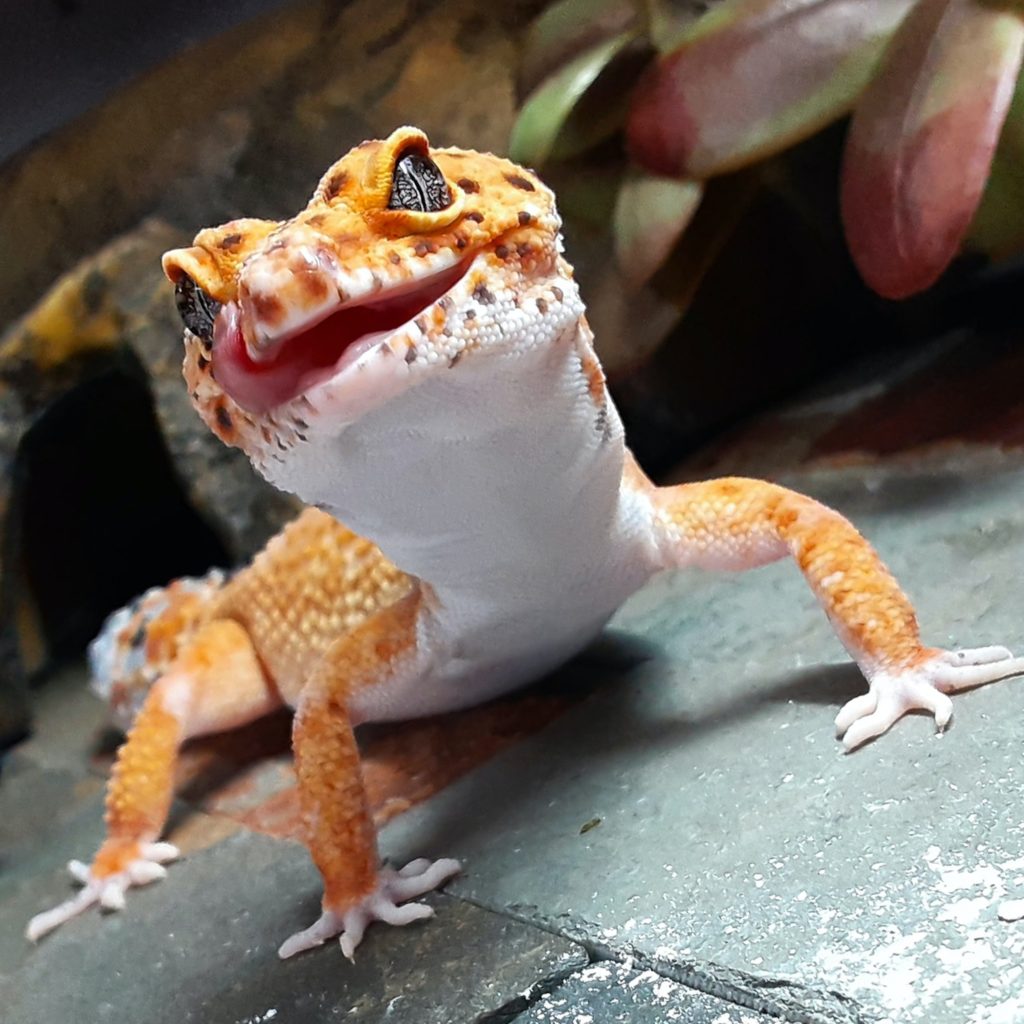
Although not typically chosen as a pet for seniors, some reptiles, such as leopard geckos, can actually make great pets for the elderly. One reason is that they are low maintenance pets and a quiet alternative to fish. Geckos are also small in size, less noisy, and easy to care for. Leopard geckos also do not need to be fed daily and can live longer than fish, so there is no need to keep replacing them like fish.
Turtles are also another great pet for seniors to get. To take care of turtles as a pet, you need only to keep their environment clean, feed them, and offer a basking area. They are also a solitary pet, but you do have to keep an eye on them occasionally. Plus, turtles can carry salmonella bacteria which is very harmful to human beings. So, keeping their environment clean is highly important. When getting a turtle, be sure to get one from an animal shelter or rescue team, instead of pet stores.
7. Hamsters
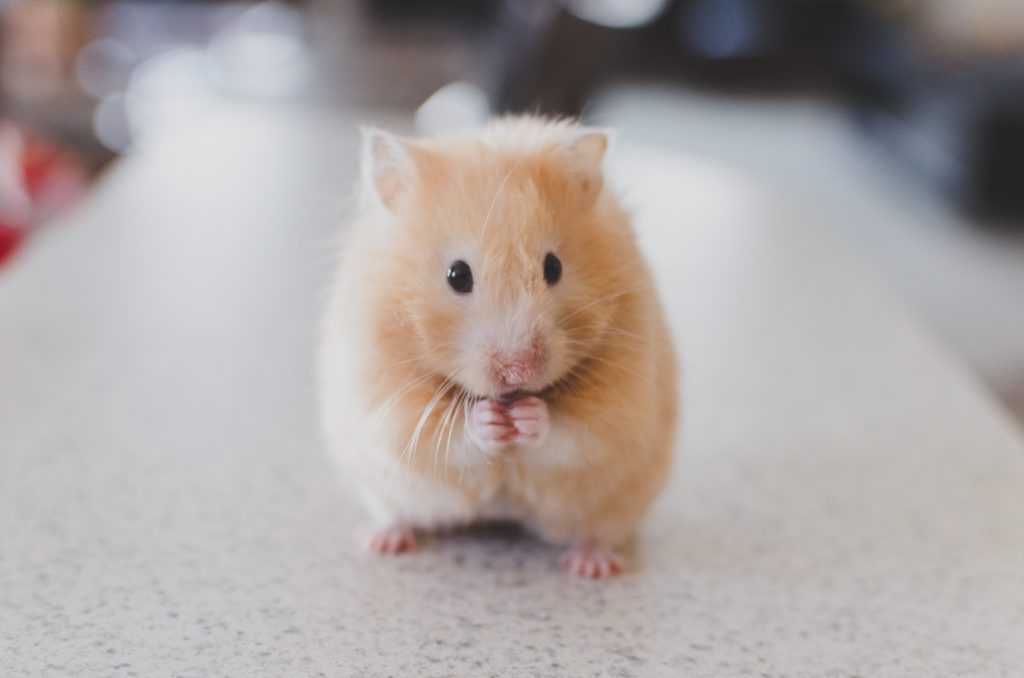
Hamsters are another good choice for seniors to choose as a pet. They are very cute and fun to watch, especially when in their exercise ball. The best types of hamsters to get are dwarf hamsters or Syrian hamsters. They are very low maintenance and fun to hold in your hand. A Hamster’s environment (cage) takes up a small space and are often very clean animals, due to self-grooming, such as cats do. Hamsters are also cheap to keep and won’t shed like a cat or dog. They are also great pets for people who live in a no-pet apartment; since hamsters live in cages, they are often accepted. There are some cons to having them though. For seniors who need to get sleep at night, then a hamster would not be the best choice, since they are nocturnal. Plus, they do get scared very easily. It has been said that even a loud barking dog can cause a hamster to have a heart attack and die. But the pros do outweigh the cons.
8. Rabbits
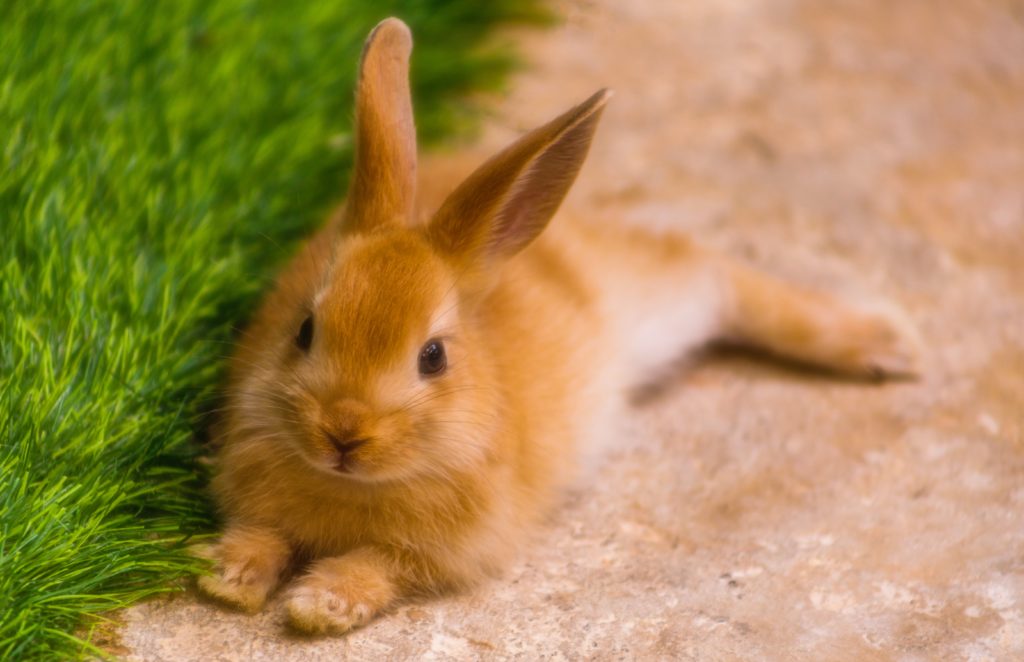
Our last pet for seniors is the rabbit. Although not the greatest choice, they do have some perks. Similar to cats, rabbits are soft and fluffy, make less noise, love to show affection, and use litter boxes. They are great at living indoors, if they have a special place for them to roam and can be taken outside for some playtime. Just keep an eye on them, and safely away from wild animals like foxes or wolves. They do often like to interact with children too, so if you have grandchildren, they can also have fun with the little bunny.
Benefits of Owning a Pet for Seniors
Better Mental and Emotional Health in Seniors
One of the most important reasons for seniors to have a pet is the positive effect it can have on their mental and emotional wellbeing. Some research has found a strong connection between mental health and pet ownership. For example, some seniors with dementia are known to have less anxiety or depression episodes. Older adults with Alzheimer’s disease may also have fewer agitated episodes if there is a pet in the house. Owning a pet can also build up a senior’s self-esteem and feel less lonely or isolated. Having a pet will also help seniors be less stressed out and can improve their mood throughout the day. A good example of this is that every time you pet a dog it can increase dopamine and serotonin levels in the brain, creating a sense of pleasure and enjoyment for seniors.
Higher Activity Levels in Seniors
Another great reason for seniors to have a pet is the physical aspect it provides to seniors. For example, having a dog can help seniors stay active in their later years. Dog owners are more likely to take walks and enjoy the outdoors, than just sitting at home like a couch potato. The National Institutes of Health (NIH) study shows that “those who owned a pet had significantly lower increases in systolic and diastolic blood pressure in response to the stressor than those who did not.” The study also said that having a pet can lower cholesterol levels in the blood for some seniors. It is also believed that having a pet can contribute to a higher survival rate among those who recently had heart attacks.
Improved Interpersonal Relationships
When seniors have a pet, their social interactions with family and friends can also improve. Seniors tend to feel more open about life and strive to live a stress-free life than those who are non-pet owners. Relationships between caregivers and their older parents also will improve when there is a pet in the home. It can also prevent the caregiver from burnout and a lower turnover rate. Plus, when seniors take their pets on walks to parks or a short walk it can lead to new relationships within the community. Elderly people with pets have a lower chance of being isolated from family and are more likely to socialize with others, even within the neighborhood. Having a pet, such as a dog can also improve the safety measures of seniors because they tend to be a good burglar deterrent and may find help if an emergency occurs.
The Bottom Line on Pet Ownership
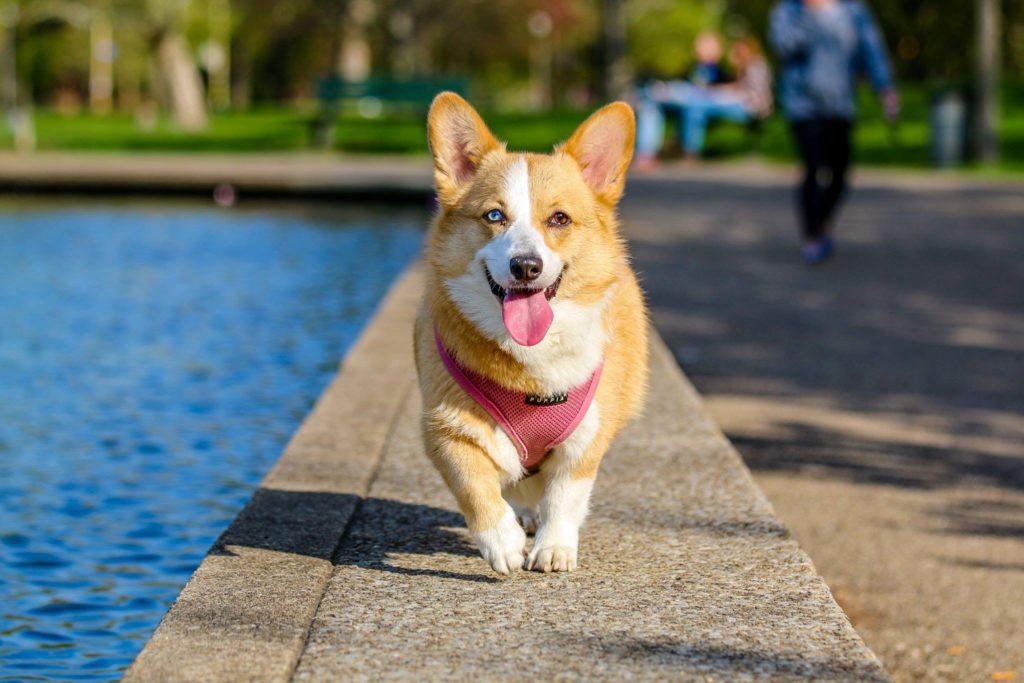
As we see, there are many reasons why getting a pet for an elderly person is important. Plus, there are many types of pets that are available for seniors to choose. Here are just a few overall benefits for having a pet for seniors:
- Helps them enjoy life
- Makes them feel loved and needed
- Encourages physical activity as they age
- Reduces stress and depression
- Connects them with others within society
- Provides a sense of purpose